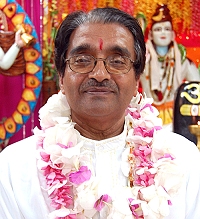 How would we, as a population, describe our leadership today? Is it satisfactory? Is it just? Is the current leadership fulfilling our needs as a people? The fundamental thrust of leadership should be a desire to serve; not to be served. It is this elemental quality of self-sacrifice that seems to be lacking in today’s leaders. By using the term ‘leaders’, the general and all-encompassing sense of the word is meant: government/political leaders, community leaders, spiritual and religious leaders, teachers, and of course, the leaders in the home, mothers and fathers.
How would we, as a population, describe our leadership today? Is it satisfactory? Is it just? Is the current leadership fulfilling our needs as a people? The fundamental thrust of leadership should be a desire to serve; not to be served. It is this elemental quality of self-sacrifice that seems to be lacking in today’s leaders. By using the term ‘leaders’, the general and all-encompassing sense of the word is meant: government/political leaders, community leaders, spiritual and religious leaders, teachers, and of course, the leaders in the home, mothers and fathers.
The role of ‘leader’ has often been likened to that of the mouth-body relationship. The mouth intakes food and performs the much needed work of chewing, beginning the process of digestion whilst the body benefits immediately by receiving much-needed nourishment. Likewise, leaders in society should perform a similar task: they ought to initiate and instigate the process for constructive change thereby nourishing the lives of the populace that they serve. Is this happening today? Are we, as a people, benefitting from the decisions and movements of our leaders? Today there is widespread discontent and disharmony among the rank and file of our country. If one objectively contemplates this situation, it would be evident that dissatisfaction among the hoi polloi is a clear indication of failed leadership. Furthermore, our leaders show a general disrespect for our well-being by ignoring our cries for reform.
In the Shri Ramcharitramanas, we are shown how ideal and proper leadership can result in a country’s happiness. Shri Raam was the ultimate leader by sacrificing his personal peace for the city of Ayodhya. He sacrificed by sending his wife, Sita Maataa, into the forest when the people began to question her integrity. He knew that discontent among the people is a reflection on the leadership. He dealt with the situation deftly and swiftly. This is the ultimate form of leadership: self-sacrifice that will result in happiness for the people. In the current times of depression and hardship, it is this ideal leadership that is needed.
The Hindu scriptures also condemn such forms of maximum leadership that seem to be rampant in today’s world. It cannot be a good thing when one man is totally in charge, vetoes everything, and makes all decisions. According to the Bhagwad Gita, man will always battle and fall prey lust, greed, anger, jealousy and envy, with particularly dire consequences if they consume people in leadership positions. It is therefore imperative that decisions are taken in conjunction with others, more importantly, in consensus with the people. Maximum leadership is definitely not recommended or sanctioned by our scriptures.
On the individual level, each man/woman is a leader in the home, community and country at large. This lesson therefore applies to each person. Once again, it is necessary that we return to spirituality, and those spiritual qualities that ensure proper leadership. An adherence to one’s dharma or duty plays a pivotal role in ensuring that social values and systems do not degenerate. It is crucial that we inculcate selfless and dispassionate attitudes when going about our daily duties. It is only when we as citizens become models of ideal leadership can our community, political and spiritual leaders step up the standards. We should settle for no less. We should make the changes on the personal levels first, and insist that our national leaders do the same. A body is useless without a functioning head. Likewise, this country and its people cannot progress without focussed leadership; a leadership that is rooted in spiritual qualities like self-sacrifice and dispassion.
Swaha is appealing to all current and aspiring leaders to put their best foot forward. We are living in times of great depression. Ideal leadership is therefore mandatory. In order to avoid further economic, social and spiritual degeneration, all leaders must take their responsibilities seriously. It is your duty to lead. Do so spiritually.


Dhanraji
Please publish this message in all the newspapers in Trinidad and Tobago.